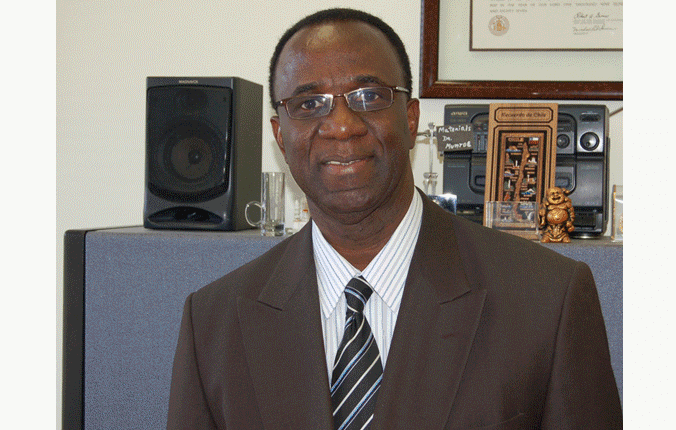The discovery of several billion barrels of oil offshore Guyana since 2015 and the start of production, now just months away, have made it clear that the South American country is entering a new era in its history that will require enhance capacity and training at the national level if benefits from this new industry is to be maximised.
Fulbright Scholar, Dr. Norman D.H. Munroe, outlines the role the country’s learning institution will play in the coming years as oil production ramps up. Dr. Munroe was recently welcomed to Guyana by US Ambassador Sarah-Ann Lynch as part of efforts by the US to help the South American country to efficiently manage the anticipated oil revenues for the benefit of the Guyanese people.
The professor is one of over 800 US citizens globally who will teach, carry out research, and/or provide expertise abroad for the 2019-2020 academic year through the Fulbright US Scholar Program.
The Value of ABET Accreditation
Guyana is poised to become a major oil producer in the Western Hemisphere with production expected to commence by the first quarter of 2020, if not earlier. The oil and gas (O&G) industry will quickly be an integral part of Guyana’s landscape for decades. While the effects will be transformative, entry to the global marketplace will strain Guyana’s ability to manage these new resources on a day-to-day basis.
The University of Guyana (UG) and the Faculty of Engineering and Technology (FET) will play a pivotal role in building the necessary human capital – knowledge, skills, creativity and wellbeing – needed to navigate this new frontier. While international operators will supply some of the specialised engineering skills needed, operations will create demand and opportunity for Guyanese with an engineering background. UG already offers training in the traditional disciplines such as Mechanical, Civil and Environmental, Electrical and Petroleum and Geological Engineering. Guyanese are seeking out these opportunities, and the FET has already witnessed a 40% increase in enrollment.
The University of Guyana’s Strategic Plan 2018 -2023 outlines three pillars for FET’s strategic plan -Teaching, Research and Partnerships. These are to be implemented with specific goals, targets and action items. The number one goal is to continually improve the education offered to our students by focusing on teaching, improved curriculum, facilities development and the pursuit of accreditation for engineering programmes. This article focuses on the value of that accreditation.
Accreditation Board for Engineering & Technology (ABET)
ABET is the recognised global accreditor of college and university programs in applied science, computing, engineering, and technology. Accreditation is a peer-review process that certifies the quality of the postsecondary education and provides assurance that programs meet top-tier global quality standards for engineering. Educational institutions or programs with ABET certification also undergo periodic reviews to ensure that established criteria are being met. The ABET Board is comprised of four commissions: The Applied Science Accreditation Commission (ASAC); Computing Accreditation Commission (CAC); Engineering Accreditation Commission (EAC); and the Technology Accreditation Commission (TAC). The FEC will pursue accreditation under the EAC.
ABET works alongside a nation’s higher education quality assurance organisation and also takes an active role in the global quality assurance process for STEM education programs through numerous agreements with organisations worldwide. These include Mutual Recognition Agreements (MRAs) and Memoranda of Understanding (MOUs).
For this reason, graduates of an ABET-accredited program have an excellent educational foundation. There are a number of benefits when one graduates from an ABET accredited program. These include enhanced employment opportunities with multinational corporations; entry to the technical profession through licensure; registration and certification in professions; and more flexibility in the transfer of credits to institutions.
It should be noted that Tertiary institutions in the Eastern Caribbean are also now pursuing ABET accreditation. For example, the University of the West Indies, Mona, Jamaica has one ABET accredited engineering program in Electrical and Electronics Engineering (10/01/2015). Barbados is currently pursuing ABET accreditation of a Mechanical Engineering program for a new engineering school in what can be viewed as education tourism.
ABET Criteria
The starting point for accreditation is a quantitative and qualitative assessment of the strengths and limitations of a program, called a Self-Study Report. The EAC Commission provides a Self-Study Questionnaire to help complete the program report. The report addresses the extent to which the program meets applicable ABET Criteria and policies.
The entire program review process for ABET accreditation typically takes about 19 months to be completed. Programs must address all methods of instructional delivery, possible paths that students take to complete the degree, and remote offerings available to students in the program. Since ABET’s philosophy is outcomes-based, programs must demonstrate how regular review processes are instituted and evaluated using surveys that are sent to the constituents (students, faculty, alumni, industrial advisory board and employers). This information is used to improve curriculum, update labs/facilities, course content and delivery methods.
ABET accreditation assures prospective students, peers and the professions served that the program has received international recognition of its quality, promotes “best practices” in education, directly involves faculty and staff in self-assessment and continuous quality improvement processes and is based upon “learning outcomes” instead of “teaching inputs”. Achieving ABET accreditation for UG’s programs will increase opportunities for international employment, advancement and prosperity for graduates and allow Guyana to unlock the opportunities provided by the oil industry.



